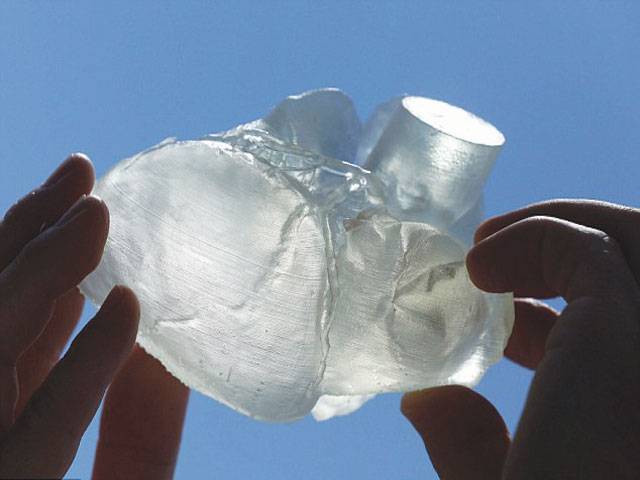LONDON-Armed with a mouse and computer screen instead of a scalpel and operating theatre, cardiologist Benjamin Meder carefully places the electrodes of a pacemaker in a beating, digital heart.
Using this 'digital twin' that mimics the electrical and physical properties of the cells in patient 7497's heart, Meder runs simulations to see if the pacemaker can keep the congestive heart failure sufferer alive - before he has inserted a knife.
The digital heart twin developed by Siemens Healthineers is one example of how medical device makers are using artificial intelligence (AI) to help doctors make more precise diagnoses as medicine enters an increasingly personalized age.
The challenge for Siemens Healthineers and rivals such as Philips and GE Healthcare is to keep an edge over tech giants from Google to Alibaba that hope to use big data to grab a slice of healthcare spending.
For Siemens Healthineers and its traditional rivals, making the transition from being mainly hardware companies to medical software pioneers is seen as crucial in a field becoming increasingly crowded with new entrants.
Google has developed a raft of AI tools, including algorithms that can analyse medical images to diagnose eye disease, or sift through digital records to predict the likelihood of death.
Alibaba, meanwhile, hopes to use its cloud and data systems to tackle a shortage of medical specialists in China. It is working on AI-assisted diagnosis tools to help analyse images such as CT scans and MRIs.
Siemens Healthineers, which was spun off from German parent Siemens in March, has outpaced the market in recent quarters with sales of medical imaging equipment thanks to a slew of new products.
But analysts say the German firm, Dutch company Philips and GE Healthcare, a subsidiary of General Electric, will all come under pressure to prove they can save healthcare systems money as spending becomes more linked to patient outcomes and as hospitals rely on bulk purchasing to push for discounts.
Siemens Healthineers has a long history in the industry.
It made the first industrially manufactured X-ray machines in 1896 and is now the world's biggest maker of medical imaging equipment.
Now, Chief Executive Bernd Montag's ambition is to transform it into the 'GPS of healthcare' - a company that harnesses its data to sell intelligent services, as well as letting smaller tech firms develop Apps feeding off its database.
As it adapts, Siemens Healthineers has invested heavily in IT. It employs some 2,900 software engineers and has over 600 patents and patent applications in machine learning.
It is not alone. Philips says about 60 percent of its research and development staff and spending is focused on software and data science. The company said it employs thousands of software engineers, without being specific.
Experts say the success of AI in medical technology will hinge on access to reliable data, not only to create models for diagnosis but also to predict how effective treatments will be for a specific patient in the days and years to come.
'Imagine that in the future, we have a patient with all their organ functions, all their cellular functions, and we are able to simulate this complexity,' said Meder, a cardiologist at Heidelberg University Hospital in Germany who is testing Siemens Healthineers' digital heart software. 'We would be able to predict weeks or months in advance which patients will get ill, how a particular patient will react to a certain therapy, which patients will benefit the most. That could revolutionise medicine.'
To this end, Siemens Healthineers has built up a vast database of more than 250 million annotated images, reports and operational data on which to train its new algorithms. In the example of the digital twin, the AI system was trained to weave together data about the electrical and physical properties and the structure of a heart into a 3D image.






